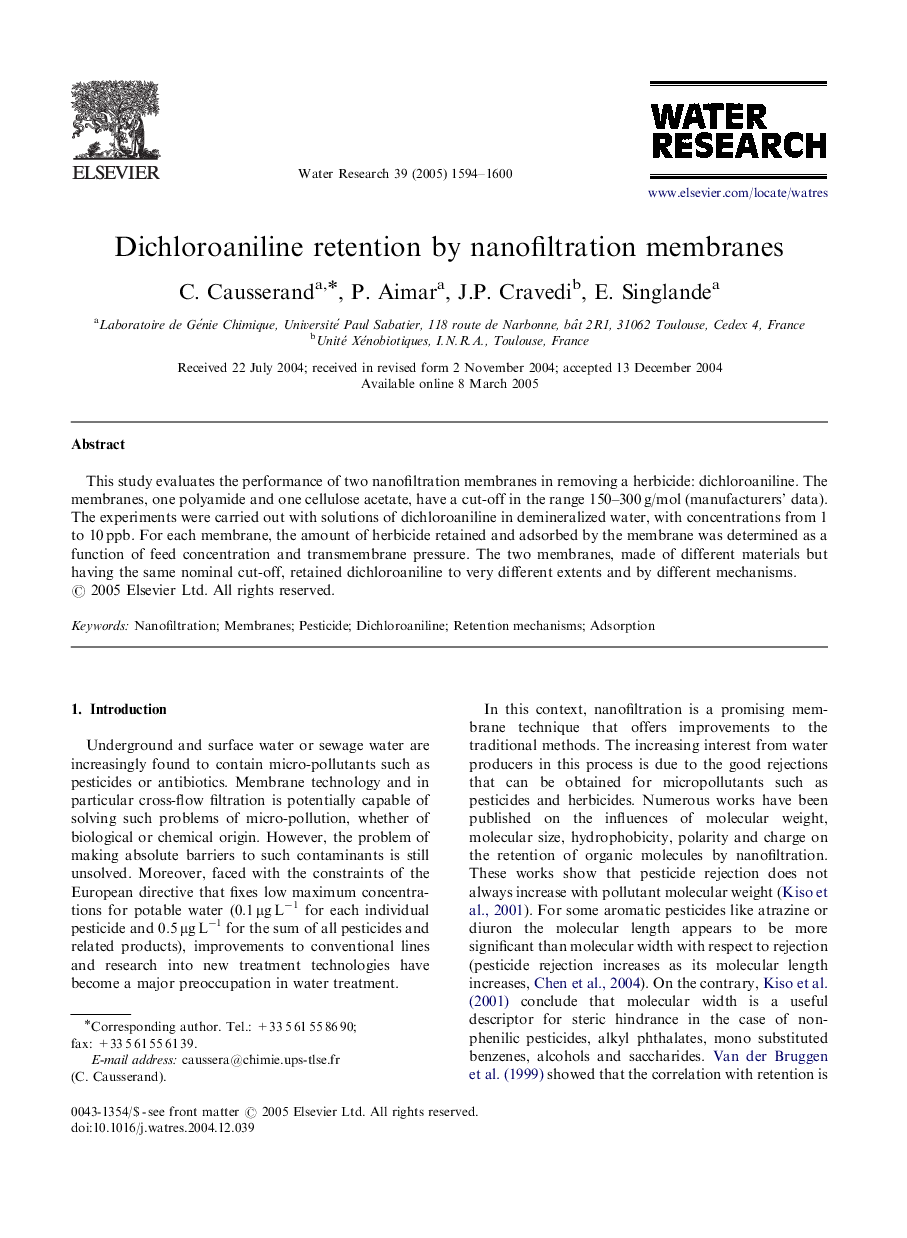| Article ID | Journal | Published Year | Pages | File Type |
|---|---|---|---|---|
| 9468209 | Water Research | 2005 | 7 Pages |
Abstract
This study evaluates the performance of two nanofiltration membranes in removing a herbicide: dichloroaniline. The membranes, one polyamide and one cellulose acetate, have a cut-off in the range 150-300Â g/mol (manufacturers' data). The experiments were carried out with solutions of dichloroaniline in demineralized water, with concentrations from 1 to 10Â ppb. For each membrane, the amount of herbicide retained and adsorbed by the membrane was determined as a function of feed concentration and transmembrane pressure. The two membranes, made of different materials but having the same nominal cut-off, retained dichloroaniline to very different extents and by different mechanisms.
Related Topics
Physical Sciences and Engineering
Earth and Planetary Sciences
Earth-Surface Processes
Authors
C. Causserand, P. Aimar, J.P. Cravedi, E. Singlande,
